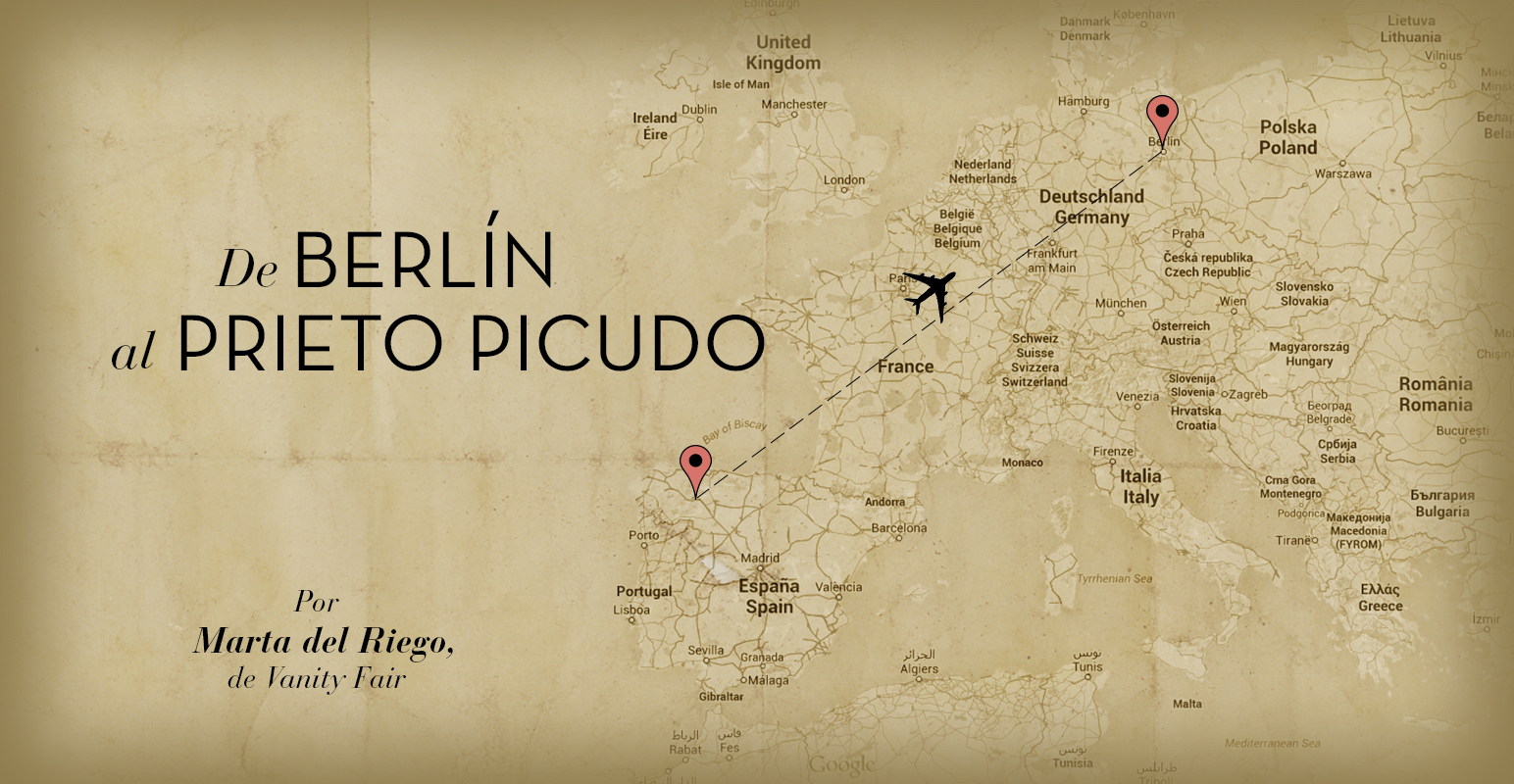From Berlín to Prieto Picudo

The cart clatters along the path that cuts through the thick snow-covered woods. Two strong black horses pull it along cheerfully. Someone starts in on a German folk song, there is laughter and conversations overlap. It is five below zero, but it doesn't matter: we are near Bremen, in northwestern Germany, and tradition dictates a wintry excursion into the countryside that ends with a steaming plate of sausages and cabbage at a tavern in the middle of the forest. I feel like a bit of a foreigner among this group of Germans until my friend Dieter opens a bag at his feet and pulls out...a bottle of Ribera del Duero. He looks at me, and in a serious tone he says, “Really you're supposed to drink hard liquor, but I prefer wine.”
This happened several years ago while I was living in Germany. It might seem paradoxical, but this is the country where I learned to like wine. I'm from southwestern Leon, a place that once had a great winegrowing and winemaking tradition. There was nothing around my village, La Bañeza, but vineyards and wine cellars dug deep into the reddish earth as far as the eye could see. The local variety was—and still is—Prieto Picudo. It gets its name from the tightly packed clusters and small, pointed berries. It is a very aromatic grape with a very fruity flavor that can easily withstand cold and dry weather, the extreme shifts of a continental climate. Everyone in my county grew their own grapes, and some families had enormous vineyards spread across the land. Right outside the village, on the other side of the river and next to the station, the wineries, cooperages and warehouses lined up one after the other. Life revolved around the growth cycle of the vine. People pruned the vines in February, ploughed the vineyards in March, harvested the grapes in September. Even a written account exists—a delightful little novel about local customs and manners published in 1928 entitled Vendimiario. The plot is built around the wine and the harvest of this particular county.
The end of the Spanish Civil War marked the beginning of the slow and inexorable decline of our wine and grape industry. But even as late as 1970, when my grandfather built the house that I grew up in, he made sure it had a wine cellar and a winepress.
A decade later, wine culture had all but disappeared from the region.
Why? My grandparents got old and stopped growing grapes. Their children, busy with more productive lines of work, did not have time to tend to the vines. This happened in the vast majority of families. Eventually, the wineries were abandoned, the cooperage closed, and Prieto Picudo was gradually dismissed as a low-quality grape.
When I moved to Berlin after finishing university, I rarely drank wine—only on the odd special occasion or at a family gathering. For me, Germany meant the rediscovery of wine. I met a group of Germans who were crazy about Spanish reds. It was common for someone to have people over on one of those endless, freezing winter afternoons. We would chat and eat cheese on dark bread with mustard, accompanied by a good red. This is where I tried wines from Toro, Penedés, Priorat and Bierzo...I learned to love wine in all its infinite and nuanced variety. Whenever I went to Spain, I would return to Berlin with several bottles.
In the meantime, things were changing rapidly in Spain. A new attitude to wine was clearly taking shape. Even in my part of the country, the despised Prieto Picudo was starting to be treated differently: with respect. Perhaps this is what we were lacking for a long time—a respect for wine. Our parents and grandparents always had a bottle of wine on the table, and it was something so commonplace that it went unnoticed. My generation grew up awash in beer and those vile concoctions of fizzy soft drinks and hard liquor. We forgot about wine. We forgot about the ritual of going down to the wine cellar to fetch a bottle. We forgot the sound a cork makes as it pops. The tinkling of the wine being poured. The aroma of wine in the glass. The aroma of wine in the mouth.
And, above all, we forgot the taste of wine.
This, I think, has changed. And should change even more. Now when I go to Berlin on holiday, the Germans don't have to introduce me to Spanish wines anymore. On the contrary, I ask them to show me their country's wines, and I always take a couple of bottles of Riesling or Gewürztraminer back home. This is the true meaning of cultural relations. And with that I don't only mean the culture of wine, but culture in the broadest sense. Wine—how it is grown and made, its history and tradition—are a part of our culture, here as in Germany.
Marta del Riego
Editor-in-chief at Vanity Fair
